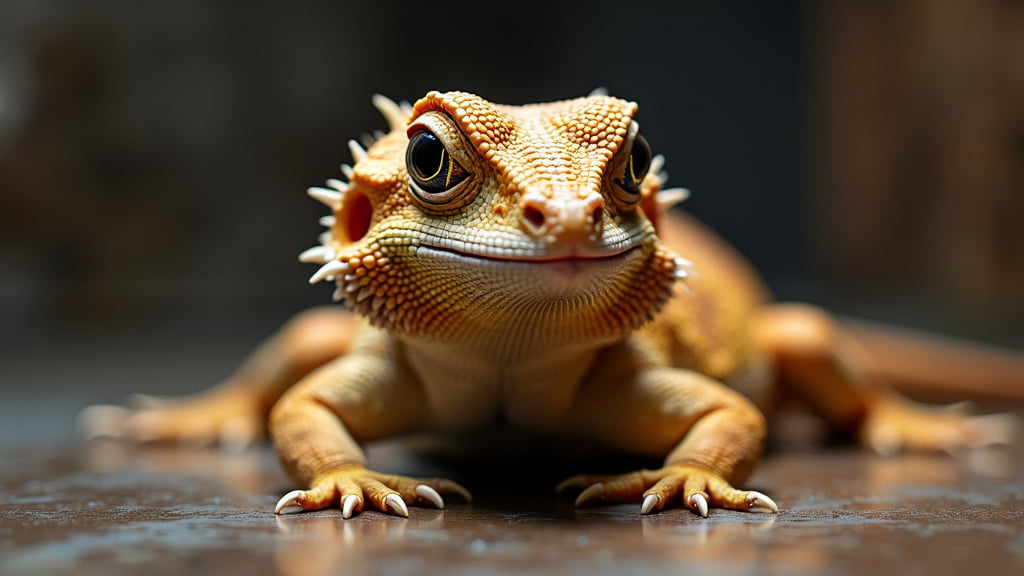Maintaining a thriving environment for your bearded dragon is critical, and a substantial part of that involves providing adequate lighting. In the past, I experimented with countless lighting systems for my bearded dragons and learned that energy efficiency doesn’t just save on electricity bills; it’s also beneficial for your pet’s health and well-being. This comprehensive guide will delve into energy-efficient lighting solutions for bearded dragons, helping you create an optimal living space while reducing your carbon footprint.
The Basics of Bearded Dragon Lighting
Why Lighting is Crucial
Bearded dragons, native to Australia’s arid regions, require specific lighting conditions to mimic their natural habitat. Proper lighting is vital for several reasons, including:
- UVB Lighting: Essential for Vitamin D3 synthesis, which in turn helps in calcium absorption.
- Heat: Bearded dragons are ectothermic and depend on external heat sources to regulate their body temperature.
- Day/Night Cycles: Mimicking natural light cycles aids in maintaining their circadian rhythm.
Common Lighting Types
Before diving into energy-efficient options, it’s important to be familiar with the kinds of lighting typically used for bearded dragons:
- Incandescent bulbs
- Fluorescent tubes
- Mercury vapour bulbs
Now, let’s explore how we can make these options more energy-efficient.
Energy-Efficient Lighting Solutions
LED Bulbs
Benefits of LEDs
LED bulbs are making waves in the reptile world due to their incredible efficiency and longevity. I switched to LEDs two years ago and noticed a remarkable decline in my electricity consumption without compromising on the quality of light provided to my dragons.
- Energy Efficiency: LEDs consume up to 75% less energy compared to incandescent bulbs.
- Longevity: These bulbs can last up to 25,000 hours, reducing frequent replacements.
- Low Heat Emission: While this may seem a downside, it allows for precise control by using separate heat emitters.
Compact Fluorescent Lamps (CFLs)
Benefits of CFLs
Compact Fluorescent Lamps have also proven to be beneficial in my experience. They provide UVB light essential for your bearded dragons, efficiently imitating natural sunlight conditions.
- Energy Efficiency: CFLs use about 70% less energy than traditional incandescent bulbs.
- UVB Emission: Specific CFLs are designed to emit adequate UVB rays crucial for your pet’s health.
- Economical: Although initially more expensive, they save money in the long run as they need less frequent replacement.
Mercury Vapour Bulbs
Benefits of Mercury Vapour Bulbs
When I first started keeping bearded dragons, I quickly adopted mercury vapour bulbs due to their dual functionality in providing both heat and UVB light.
- Versatility: Excellent for large enclosures, offering both heat and UVB in one bulb.
- Energy Efficiency: Despite being on the higher end of the energy consumption spectrum, their multifunctionality often compensates for this.
Practical Tips for Optimising Lighting
Positioning Lights
Correct positioning can significantly improve the effectiveness of your lighting setup.
- Height: Ensure the lights are positioned at the recommended height to avoid harmful UV exposure.
- Basking Spots: Place a heat emitter in combination with UVB lighting near the basking spot.
- Shading: Incorporate hiding spots and shaded areas to give your bearded dragons control over their exposure.
Using Timers and Dimmers
Automation tools like timers and dimmers can optimise energy usage.
- Day/Night Cycle: Set timers to mimic natural daylight cycles, providing 12-14 hours of light and the rest as darkness.
- Gradual Change: Use dimmers to avoid sudden changes in lighting that could stress your pets.
Regular Maintenance
A few maintenance habits can go a long way in ensuring the efficiency and safety of your lighting system.
- Clean Bulbs and Fixtures: Dust can reduce effectiveness, so clean them regularly.
- Monitor Bulb Lifespan: Replace bulbs as they near the end of their life cycle to ensure consistent quality of light.
Conclusion
Energy-efficient lighting solutions not only contribute to a healthier and more sustainable environment for your bearded dragons but also offer substantial savings on your energy bills. Whether you opt for LED bulbs, CFLs, or mercury vapour bulbs, the key is to ensure they meet the specific needs of your reptile friend. Remember to consult a vet for any health concerns and keep updating your knowledge on the latest advancements in reptile lighting.
For more detailed information on bearded dragon care, visit our Bearded Dragon Care Guide.
Creating an optimal living environment for your bearded dragon is a rewarding endeavour. With the right energy-efficient lighting solutions, you’ll ensure your pet thrives while also doing your bit for the planet.

